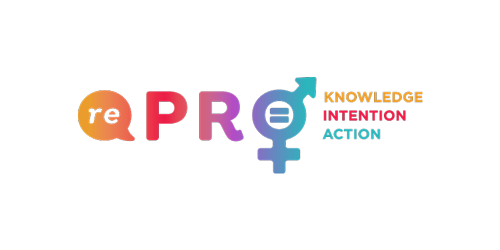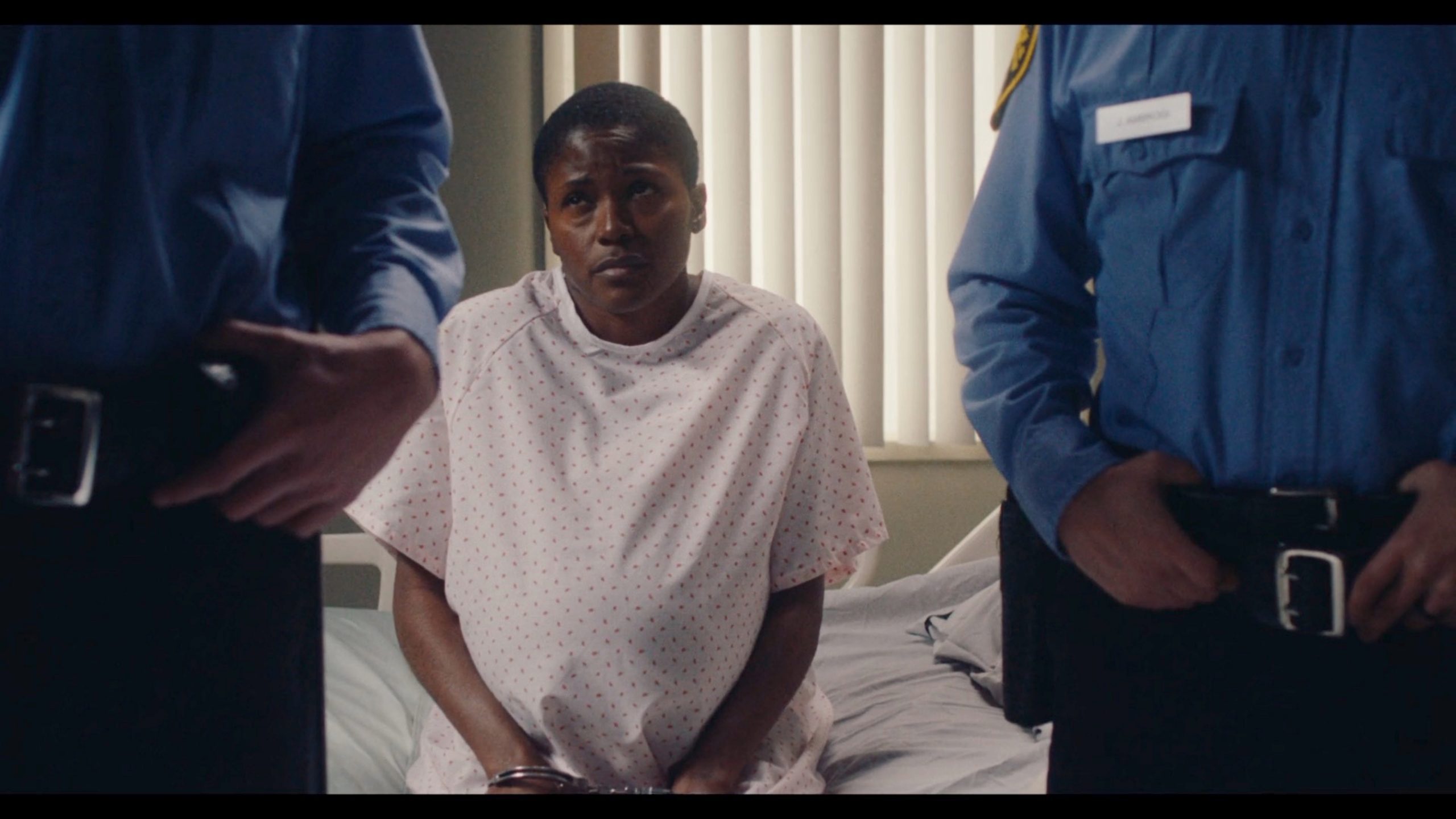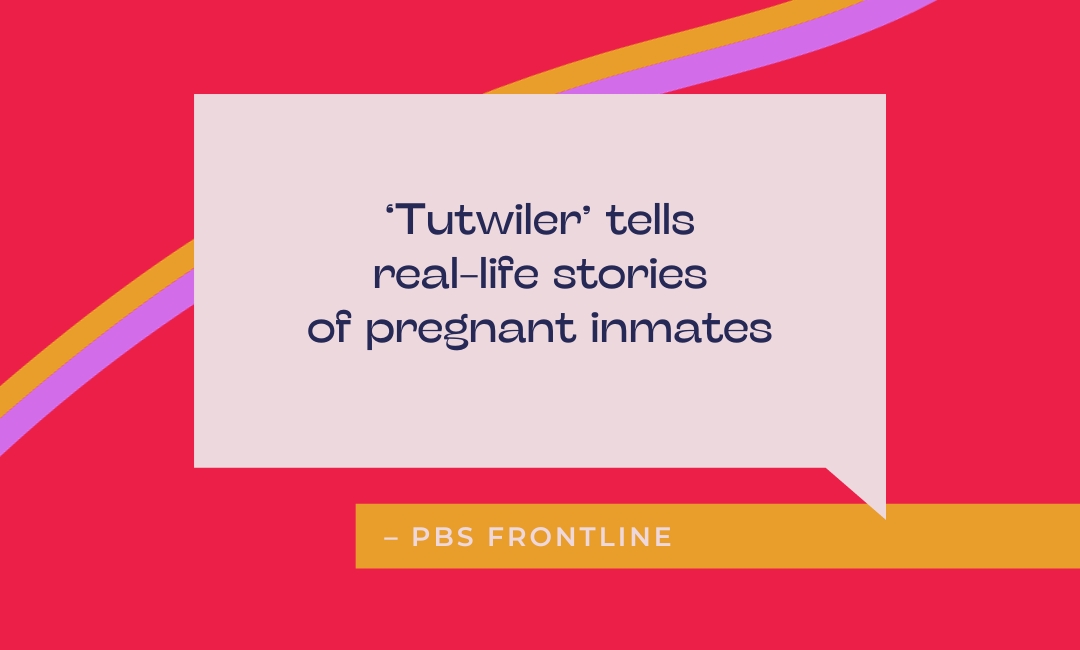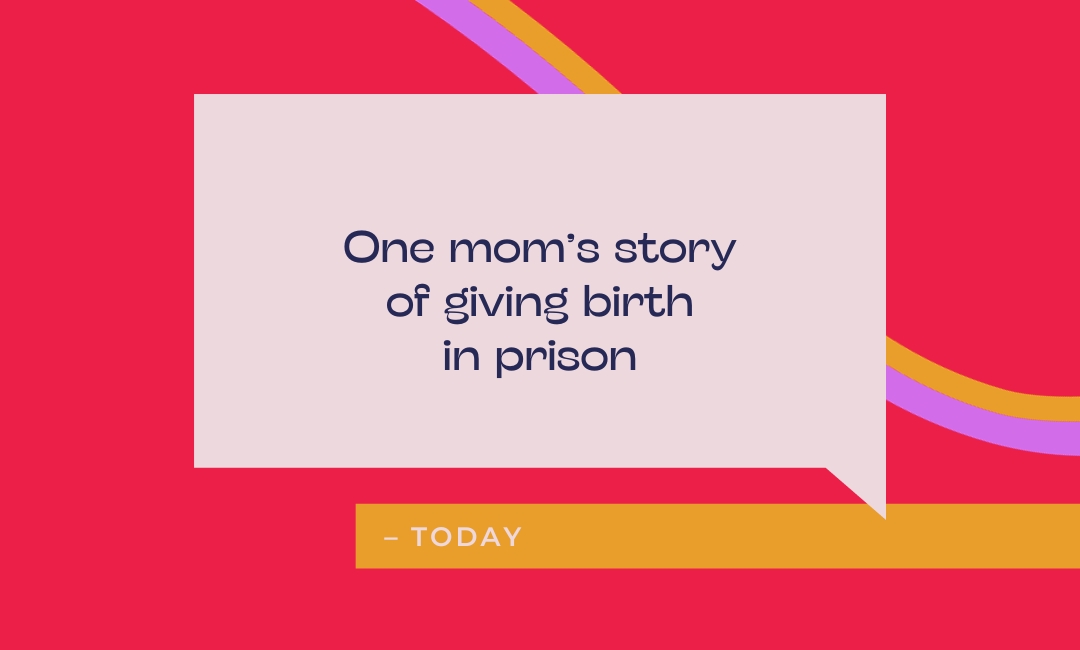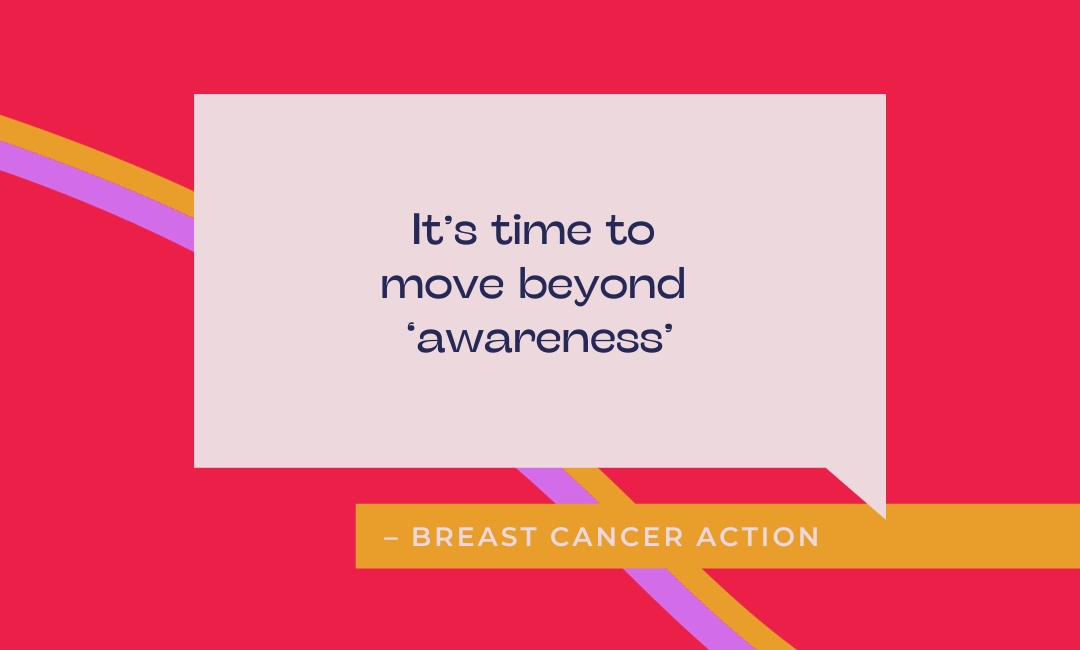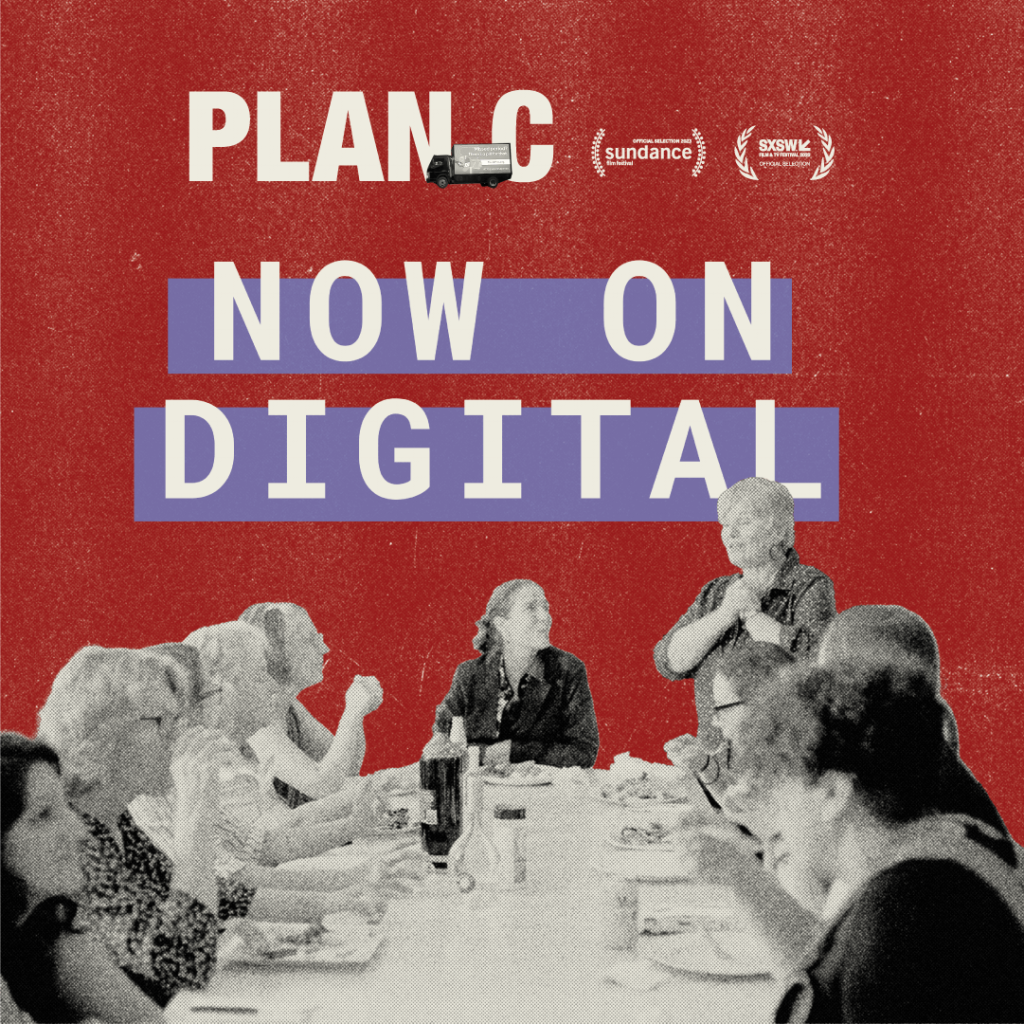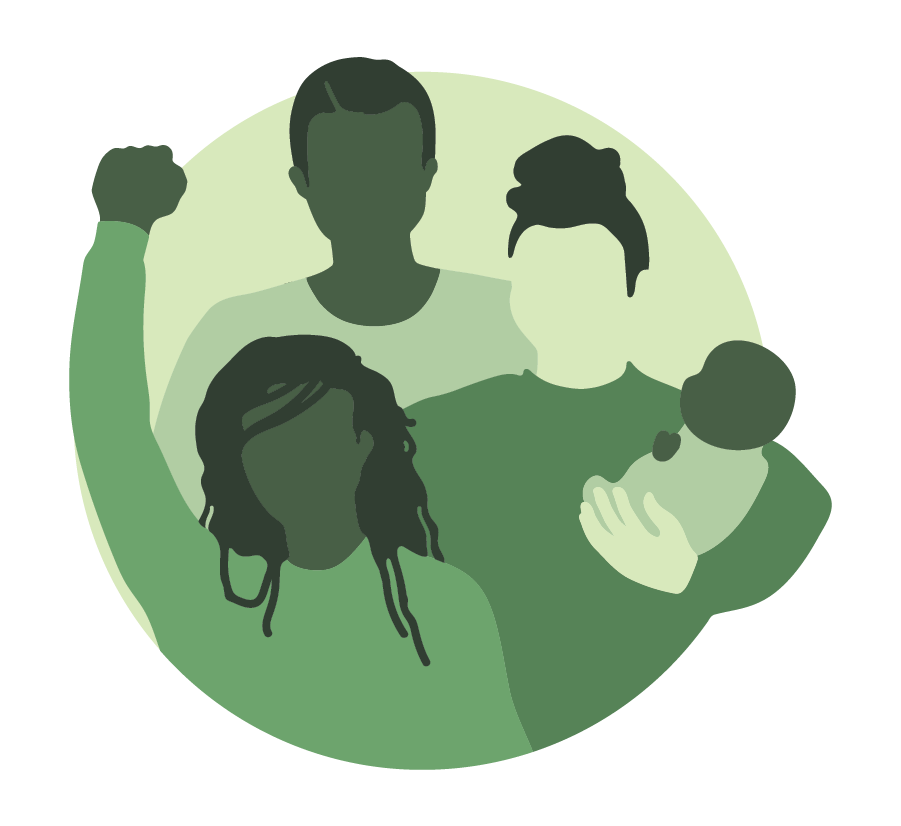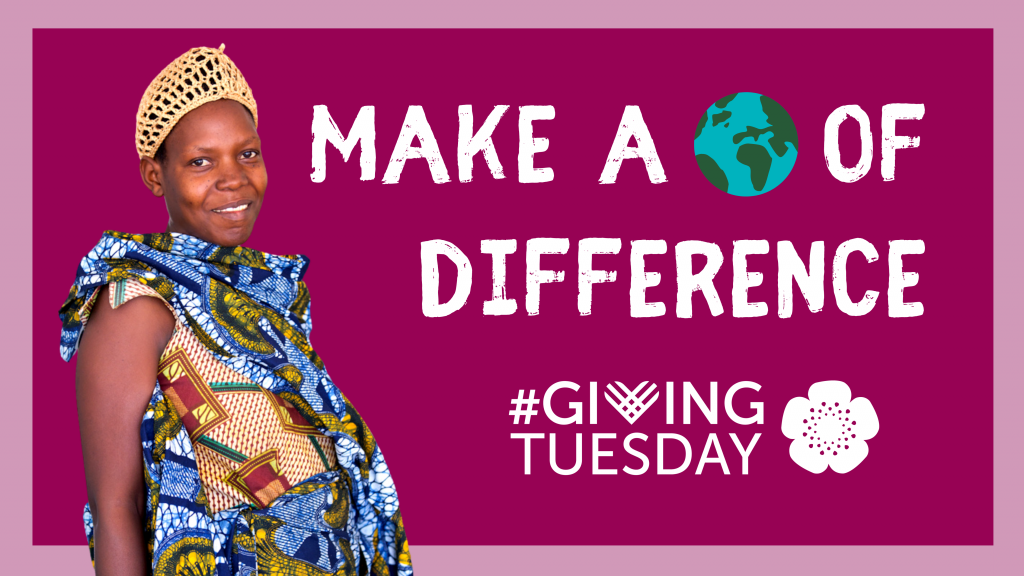The rePROFilm Periodical – featuring a new film and podcast each month – is generously underwritten and is FREE and available to anyone.

Through film and conversation, rePROFilm advocates for reproductive health, justice and bodily autonomy. We lift intersectional issues, using the power of storytelling as a catalyst for knowledge, intention and action.
VOL. 22, WATCH:
BIRTH BEHIND BARS
Aria has a simple wish: to care for her daughter after her birth.
She is incarcerated in a prison with a “nursery block,” so the possibility is real. As her due date approaches, Aria waits for a response to her request.
“The Bond,” our Vol. 22 short film selection, is fictional, but the scenario is very real: More than 58,000 pregnant people are imprisoned every year, and more than 2,000 babies are born behind bars.
Incarcerated people are people. Sometimes they are parents. Sometimes they are pregnant. This volume of the rePROFilm Periodical focuses on the intersection of reproductive justice and incarceration.
VOL. 22, LEARN:
IMPRISONED & PREGNANT
Most of us will never set foot inside a prison, much less face the possibility of giving birth while we’re there. And yet this is the reality for nearly 60,000 pregnant people who are incarcerated every year.
“The Bond,” the rePROFilm Vol. 22 short film selection, illuminates the unique difficulties faced by pregnant inmates. In this Periodical update, we’re bringing you additional context to the story of Aria, the film’s main character. Our resident medical expert Dr. Julia weighs in on the medical implications of shackling prisoners during pregnancy and labor. And we’ve got a few more resources to share, too.
This is a tough topic but an important one. As always, thanks for watching along with us.
XO,
Team rePROFilm
VOL. 22, LISTEN:
LOVE, LONGING, & LIBERATION
Pop in your earbuds: In this edition of the rePROFilm Periodical, we invite you to listen to a conversation about and music inspired by our Vol. 22 short film selection “The Bond.”
Aria’s pregnancy ends in shackles, as she gives birth within the U.S. carceral system. On the Periodical Podcast, we hear from “The Bond” writer/director Jahmil Eady about how her short film is informed by research, activism, and her own birth story. You can also find a playlist inspired by the film on Spotify.
This issue of the periodical is about activism, but it’s also about love.
XO, Team rePROFilm
VOL. 22, LISTEN:
Bringing Doulas into Prisons
Every year, more than 2,000 babies are born to individuals who are incarcerated. “The Bond,” the rePROFilm Vol. 22 selection, is a short drama about one such birth.
Aria is incarcerated in a state prison, as are nearly all people who give birth behind bars. As “The Bond” writer/director Jahmil Eady said on the Periodical Podcast, “This is a state-by-state issue.” Activists must work locally and statewide to improve care for pregnant people who are incarcerated in their communities.
Their efforts have made a huge impact: Many states have passed laws outlawing the shackling of incarcerated people during pregnancy and labor. And over the past decade, prison doula projects have begun serving pregnant inmates all over the county. These programs offer support and dignity to people who are carrying pregnancies under extremely difficult circumstances.
They are also models that can be replicated in your community if these services do not yet exist where you live.
XO,
Team rePROFilm

“The Bond” asks us to hold onto two ideas at once: imprisoned people give birth, and they care for their children no more or less than any other parent. —Emily Christensen

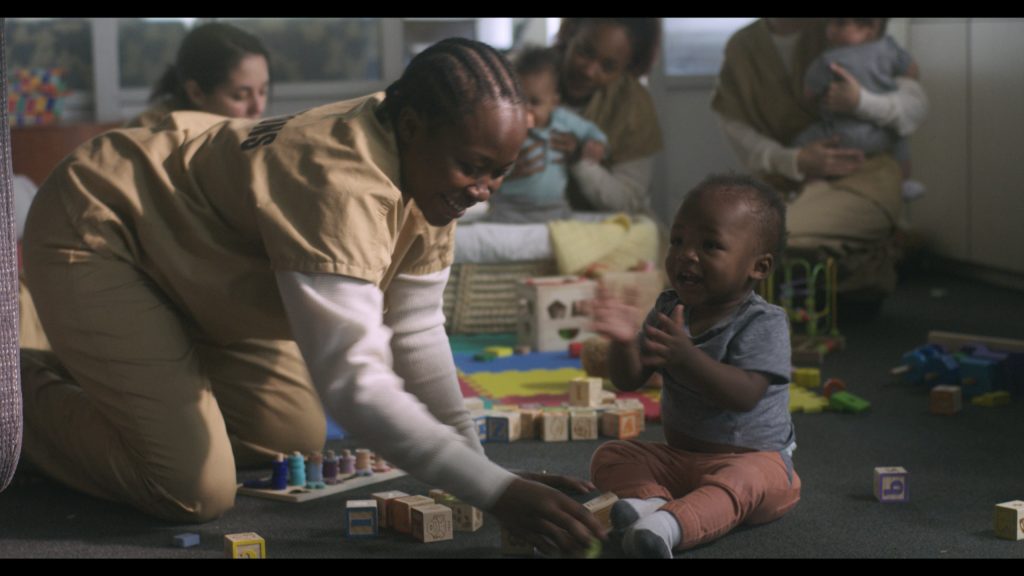
‘Tutwiler’ tells real-life stories of pregnant inmates
The PBS Frontline documentary “Tutwiler” is the perfect documentary companion to “The Bond.” The film follows some of the dozens of women incarcerated in Alabama’s Julia Tutwiler Prison who give birth every year. It also highlights the efforts of the Alabama Prison Birth Project, which provides doula support, breast pumping support, and other services to pregnant and postpartum inmates.
One mom’s story of giving birth in prison
Going back to prison after the birth of her daughter was “the most traumatic darkest day of my life,” former inmate Hayley Rider told a reporter for the Today show. Leaving prison as a new parent posed its own set of challenges, which Rider faced with the help of her family. “I don’t know how anyone can come home to nothing and no one and be successful,” she says.
(TODAY)
How Roe’s reversal will impact incarcerated women
After the fall of Roe, activists fear the already abysmal reproductive health care in prisons could get even worse. In this MSNBC segment, Deanna Hoskins, President of JustLeadershipUSA, discusses how sexual assault and addiction impact incarcerated people, and how further limiting access to abortion will increase their “mental anguish.”
(MSNBC)
Partner Event: PLAN C
With a controversial visionary at the helm, a grassroots network fights to expand access to abortion pills across the United States – keeping hope alive during a global pandemic, before and after the fall of Roe v. Wade. PLAN C is an uplifting, inspiring film – a thriller with a heart and an urgent call to action.
After premieres at Sundance and SXSW 2023, a nationwide grassroots screening run, a theatrical release in 50 theaters across the US… you can watch the film from the comfort of your own home. Catch it on Apple TV, Amazon, and more digital platforms TODAY!
A must-see, BUY OR RENT NOW!
Partner Event
Under G-d: Breaking Barries in Faith & Reproductive Justice
‘Under G-d,’ a powerful documentary from Paula Eiselt & Darcy McKinnon follows legal challenges to Dobbs rooted in religious freedom.
Join in for a special, virtual, impact event on 11/14 at 6 pm ET: “UNDER G-D: Breaking Barriers in Faith and Reproductive Justice” and hear from powerful, religious voices advocating for reproductive justice in their places of worship, including rePROFilm’s Asha Dahya. As well as filmmakers, journalists & impacted persons discussing the importance of telling abortion stories.
(RSVP)
In this moving conversation, Asha Dahya speaks with writer/director Jahmil Eady about how her own birth story inspired the screenplay for “The Bond.”
When Eady was born, her mother was incarcerated. She was shackled during labor, a practice that continues in many U.S. states today. During Eady’s teen years, her mother and other activists successfully advocated for anti-shackling legislation in New York state. Both her mother’s story and Eady’s extensive research informed the short film.
This film is meant to be a tool not just for talking about anti-shackling and the issues of giving birth behind bars, but it is also a way for people who have shame and and feel stigma to find one another … It’s a tool for connection. The reality is, in a country where millions of people are impacted by the carceral system, there’s so many of us out there. — Jahmil Eady

Love & (In)Justice, a rePROFilm playlist by Teri Mott
We’ve talked a lot about injustice this month — and with good reason. But there’s also so much love in both “The Bond” and the filmmaker’s approach to her project. Our resident DJ created a playlist that speaks to the love that no amount of injustice can extinguish.
Love is the most precious gift. Losing love brings on the fiercest heartache. Everyone deserves love, but the brutal truth is that not all have equal rights to its blessings.

State-level organizations
Alabama Prison Birth Project https://www.prisonbirth.org
Motherhood Behind Bars (Georgia) https://www.motherhoodbeyond.org
Illinois Birth Justice https://maternalchild.uic.edu/collaborations/illinois-birth-justice/
Michigan Prison Doula Initiative https://mpdi.org
Minnesota Prison Doula Project https://www.mnprisondoulaproject.org
Babies Beyond Bars (Montana) https://babiesbeyondbars.org
Virginia Prison Birth Project https://virginiaprisonbirthproject.org
Local organizations
Giving Austin Labor Support https://www.givingaustinlaborsupport.org/jail-support-program
Baltimore Doula Project Prison Services https://www.baltimoredoulaproject.org/prison-support
If you don’t see your state here, you might search around. Changes are, there are people working to support and advocate pregnant people in jails and prisons in your area.
PARTNER MESSAGE
Here’s a chance to match your passion with action for reproductive rights!
EngenderHealth is a leading global health organization committed to promoting gender equality, advancing sexual and reproductive health and rights, and enabling individuals to make informed decisions about their lives. In their last program year, they reached over 1.1 million people with contraceptive care and averted over 477,000 unsafe abortions! This #GivingTuedsay their generous board of directors will match all gifts up to $21,000 making your impact go even further.
rePROFilm endeavors to make our programming a safe, accessible and welcome place for anyone who wants to participate. We acknowledge that we have much to learn about creating this space, and welcome and and all feedback that can make us better aware and able to support all minds and bodies.
We are committed to screening films in accessible venues, and also understand that meeting ADA standards for accessibility does not actually mean a venue is actually accommodating for everyone. As best we can, we will offer a complimentary companion ticket to our film screenings as requested. For our virtual screenings, we ask all filmmaking teams to provide closed captioning, audio descriptions or open captions whenever possible. For any questions, please contact us at 323-810-6909 or help@reprofilm.org. We are here to do our best to make our programming as inclusive as possible.
